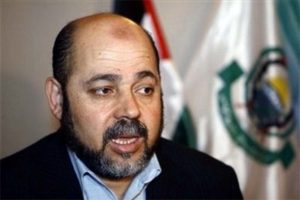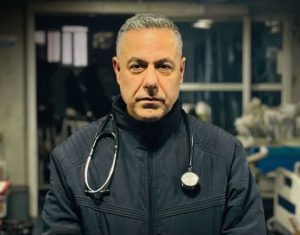By: Widi Kusnadi, MINA Journalist
Rasulullah Muhammad Shallallahu alaihi Wasalam said:
ألَا وَإنَّ فِي الجَسَدِ مُضْغَةً: إذَا صَلَحَتْ صَلَحَ الجَسَدُ كُلُّهُ، وإذَا فَسَدَتْ فَسَدَ الجَسَدُ كُلُّهُ، ألَا وَهِيَ القَلْبُ (رواه البخارى)
“Remember that inside the bodqy is a lump of flesh. If he is good, then the whole body is good too. If it is damaged, then the whole body is damaged. Know that it is the heart” (Narrated by Al-Bukhari, from friend Nu’man bin Basyir)
Also Read: Imaam Yakhsyallah Mansur: Surah At-Tin Indicates the Command to Liberate Al-Aqsa
In the hadith above, Rasulullah Shallallahu alaihi Wasalam uses the diction “a lump of flesh” to refer to the heart (heart). This shows his skill in communicating, conveying messages according to the level of understanding of his listeners.
Ibn Rajab Al-Hambali Rahimahullah in his book “Jaami’ul ‘Ulum wal Hikam” explains the meaning of the hadith above that a person’s ability to do good deeds and his ability to stay away from what is unlawful, as well as to leave doubtful cases (matters with vague laws), all depends on a kind heart.
The body or bodies are only executors who carry out orders from the heart. If the heart is good, then the members of the body will do things towards the path of goodness. But if the heart is bad, the limbs will do things towards the bad path.
The heart is actually the base of beauty and glory. The key to true beauty is one’s ability to care for and pay attention to beauty and the beauty of the heart, which will be reflected in good thoughts and behavior.
Also Read: Imaam Yakhsyallah: Nurture Love for the Prophet, One Will Be with Whom One Loves
Imam Al-Ghazali classifies hearts into three groups, namely healthy hearts (qolbun shahih), sick hearts (qolbun maridh), and dead hearts (qolbun mayyit).
A person who has a healthy heart is like having a healthy body. He will function optimally, able to sort and choose the right and good actions according to the commands of his Lord. Everything he does comes out of a clear heart.
A clean heart can be achieved if our life orientation is only directed to Allah Subhanahu wa Ta’ala, marked by always expecting His love (raja’) and fear of His punishment (khauf).
إِنَّ اللّٰهَ لاَ يَنْظُرُ إِلَى صُوَرِكُمْ وَأَمْوَالِكُمْ وَلَكِنpet
Also Read: Friday Sermon: Emulating the Firmness of the Prophet in Struggle
“Indeed, Allah Subhanahu wa Ta’ala does not look at your appearance and wealth, but He looks at your hearts and deeds.” (Narrated by Muslim from Abu Hurairah’s friend).
Imam An-Nawawi explained that the word يَنْظُرُ (looks at) means to give a reward for good deeds. Allah Subhanahu wa Ta’ala gives a reply and calculates a person’s charity not based on physical appearance and accessories but based on his heart (intention) and deeds.
How to have a healthy heart?
The Qur’an, which serves as a guide for human life, explains a number of signs that a servant’s heart is in good health. There are several characteristics of a healthy heart as mentioned in the Qur’an:
Also Read: Imaam Yakhsyallah: Muslims Unity as Key to Victory of Islam
First: a safe heart (qolbun salim), as in His word, surah As-Shura: 89: إِلَّا مَنْ أَتَى اللَّهَ بِقَلْبٍ سَلِيمٍ “Except those who turn to Allah with a clean heart.”
Imam As-Sa’di explained, a heart that is safe, means a heart that is free from shirk, doubt, ugliness, bid’ah and sin. A heart that is safe is one that holds fast to the opposites of the traits above, namely: sincere, confident, loves goodness and follows the instructions of Allah and His Messenger.
Second, a humble and humble heart remembers Allah, as He says in surah Al-Hadid: 16:
أَلَمْ يَأْنِ لِلَّذِينَ آمَنُوا أَنْ تَخْشَعَ قُلُوبُهُمْ لِذِكْرِ اللَّهِ وَمَا نَزَلَ مِنَ الْحَقِّ وَلَا يَكُونُوا كَالَّذِينَ أُوتُوا الْكِتَابَ مِنْ قَبْلُ فَطَالَ عَلَيْهِمُ الْأَمَدُ فَقَسَتْ قُلُوبُهُمْ ۖ وَكَثِيرٌ مِنْهُمْ فَاسِقُونَ
Also Read: Friday Sermon: Prophet Muhammad Is Not a Political Figure
“Hasn’t the time come for those who believe, to solemnly remember Allah and adhere to the truth that has been revealed (to them) and let them not (act) like those who have received the Book before that, then they go through a long period so that their hearts grew hard. And many of them became wicked people.”
Scholars explain that people whose hearts are healthy are those who do not doubt the promises of Allah Subhanahu wa Ta’ala, concentrate on remembrance and worship, and adhere to the truth of the Qur’an.
People whose hearts are healthy will not follow the way of the Jews and Christians who deny some of the laws in their books, hide or change their contents, then their hearts become hard because they do not obey the warnings of the apostles sent for them. In the end they became wicked people.
Third, the heart vibrates when the name Allah Subhanahu wa Ta’ala is mentioned, as in His words in surah Al-Anfal verse 2:
Also Read: Without Knowledge, Congregation Is Merely a Crowd Without Direction
إِنَّمَا الْمُؤْمِنُونَ الَّذِينَ إِذَا ذُكِرَ اللَّهُ وَجِلَتْ قُلُوبُهُمْ وَإِذَا تُلِيَتْ عَلَيْهِمْ آيَاتُهُ زَادَتْهُمْ إِيمَانًا وَعَلَىٰ رَبِّهِمْ يَتَوَكَّلُونَ
“Indeed, those who believe are those who, when Allah’s name is mentioned, their hearts tremble, and when His verses are recited to them, their faith increases (stronger) and they put their trust in Allah alone.”
Ibn Kathir explained, what is meant by shaking his heart is, when Allah mentions his heart trembles because he is afraid of Him, then does all His commands and abandons His prohibitions.
Imam As-Saddi said, if there is someone who commits misconduct (sin) or commits immorality, then it is said to him, “Fear Allah!” then tremble his heart and cancel his sinful deeds.
Also Read: Friday Sermon: Grateful for Indonesia’s Independence by Supporting Palestine’s Freedom
So, lucky are those who have a healthy heart, that is, those who always do good and immediately repent when they do bad things. For those who feel their heart still hurts, continue to pray to Allah Ta’ala, may He give guidance and ease for all of us to be able to have a healthy heart. Wallahu a’lam bis shawab. (T/RE1)
Mi’raj News Agency (MINA)
Also Read: The Bestial Nature of Netanyahu
































 Mina Indonesia
Mina Indonesia Mina Arabic
Mina Arabic